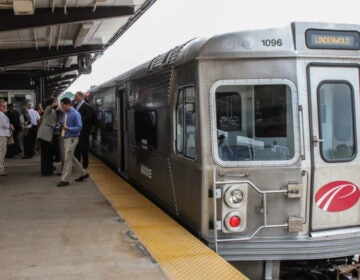Heart Conditions: Learning to live with a margin

This morning I made myself a cup of coffee. Because it was early in the morning and I was still not fully awake, I made a mistake. Once the coffee has been brewed, I poured it into my mug, all the way to the top. Not wanting to waste any of the coffee, I filled the mug to the very top, almost overflowing it.
The mistake was, I had left no room for coffee creamer or cream and sugar. What’s more, I had filled the mug so full that I couldn’t even carry it without spilling it. In my desire to not waste a drop of coffee, I had filled my cup too full to add anything else, as well as move without spilling it.
The mistake I made with the cup of coffee is a mistake that we often make with our lives. In an attempt to not waste a single moment, we fill our lives so full of activilty and busy-ness that there is no room for anything else. Sometimes our lives are so full that even the slightest movement can cause us to spill. Most of you already know the solution to my coffee problem: put less coffee in the cup, leaving room for creamer and allowing me to carry it without spilling. If I want more coffee, make a second cup. The solution to my coffee problem is the same solution for an overloaded life. That solution is called “margin.”
The concept of margin was introduced to me when I read the book Margin: Restoring Emotional, Physical, Financial and Time Reserves to Overloaded Lives by Dr. Richard Swenson.
The premise of Margin is two-fold: 1) Humans have limitations that apply to our bodies, emotions, finances and schedules; and 2) Modern Americans live overloaded lives that push us beyond those limits, often causing burn-out. “Overloading occurs whenever the requirements upon us exceed that which we are able to bear” (p. 54).
Swenson defines margin as, “the space that once existed between ourselves and our limits.” Swenson suggests that rather than living life on the edge, we should slow down and allow for margin in our lives.
One of the difficulties of living life without margin is that we do not allow adequate time/space/resources for the unpredictable. For instance, if we budget our finances down to the penny, we have no wiggle room for unexpected expenses. Similarly, if we budget our time down to the minute, we have no room for unexpected events and emergencies.
Often times things get sacrificed that really should not be sacrificed – like family friends and physical health. Allowing for margin will enable us to respond to unexpected, unplanned events, as well as enabling us be well rested and more efficient when we are working.
I have applied the principle of margin to my life by limiting the amount of commitments I make during the week. Inevitbly each week a minor crisis comes up that I am now able to manage with the leftover time and energy that I reserved throughout the week. If no emergencies come up, I enjoy a nap or extra time with my family.
In essence, margin is planning for the unexpected. It’s leaving money in the bank for an emergency, time in the day for an unexpected errand and emotional energy internally for that unplanned crisis.
Margin will prevent us from overloaded lives that inevitbly lead to burn out.
Rev. Jim Rudd is the Lead Pastor of True Vine Church Community in Wissinoming. You can visit the church website or friend-request Jim on Facebook. His column, Heart Conditions, appears on NEast Philly the third Thursday of every month.
WHYY is your source for fact-based, in-depth journalism and information. As a nonprofit organization, we rely on financial support from readers like you. Please give today.






